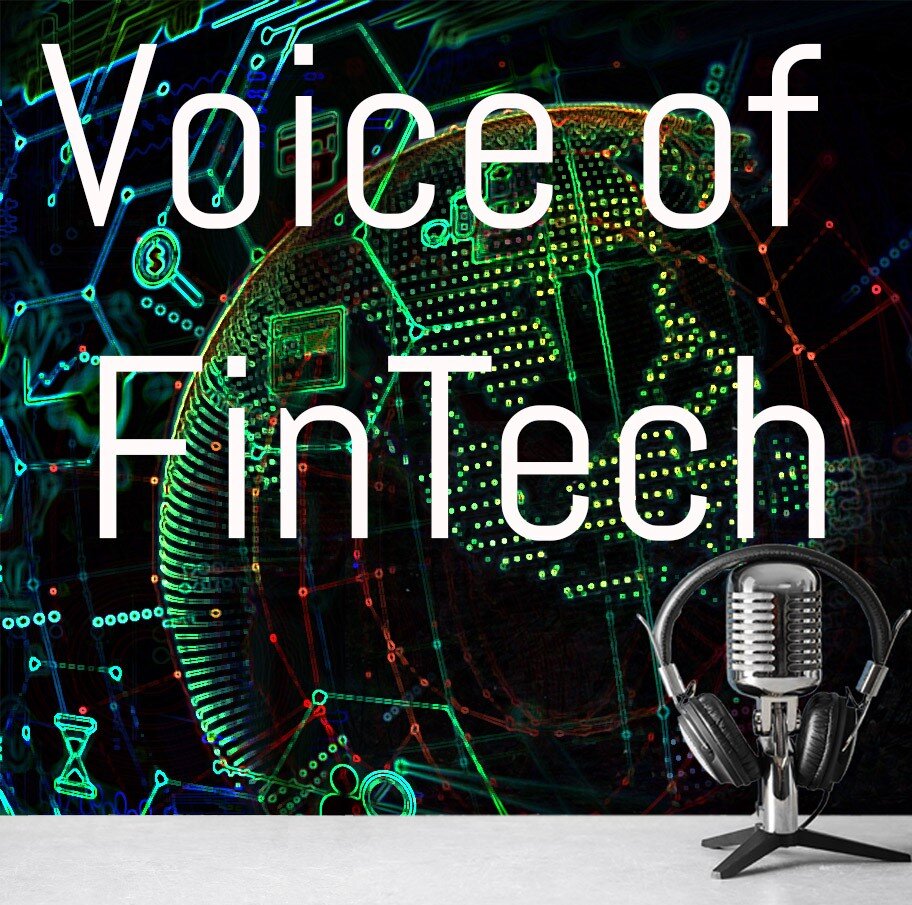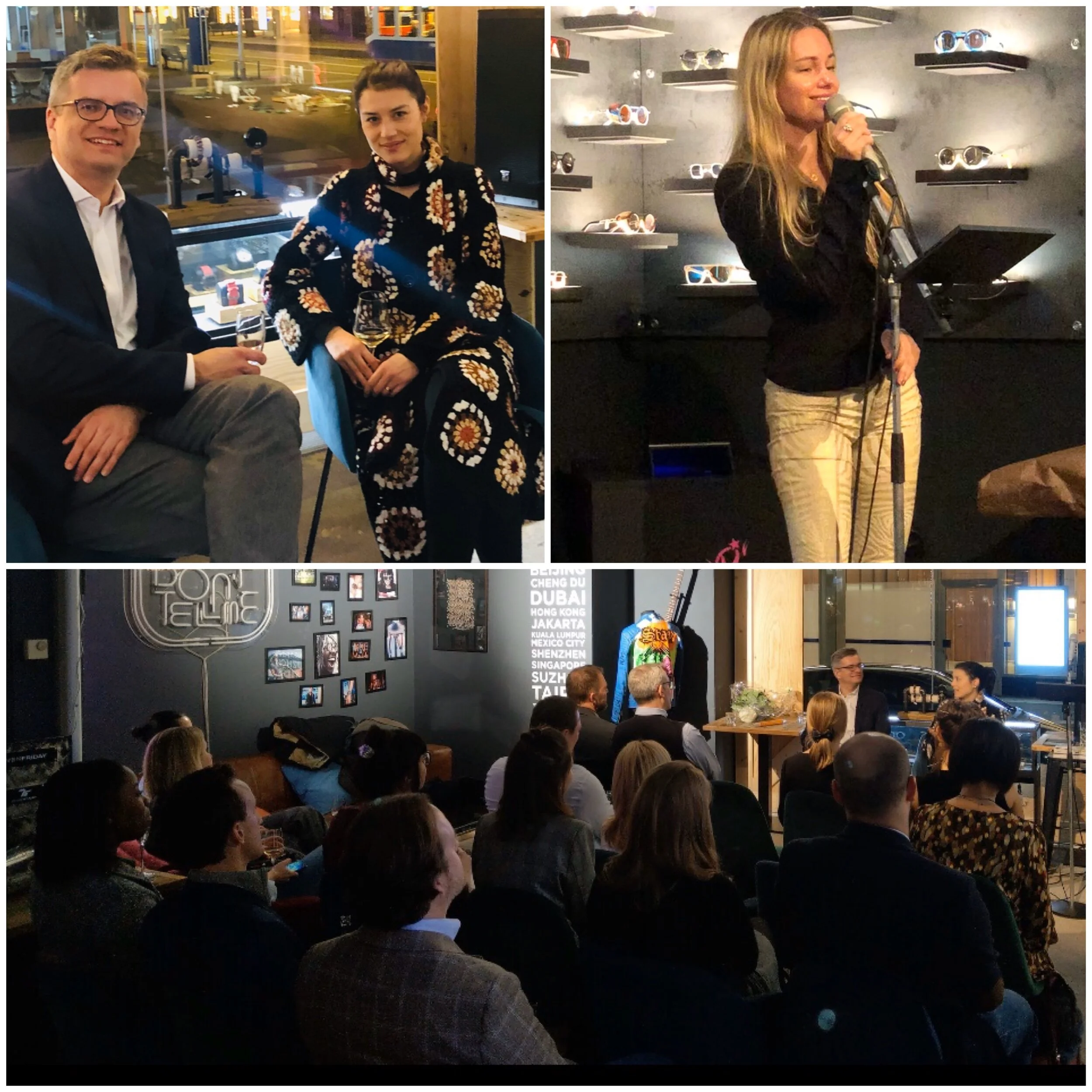Digitalization of the Art Business by Voice of FinTech: Live Speaker Series
with Tanya Koenig, Sina Anastasia and guests of Voice of FinTech: Live Speaker Series
We caught up with Tanya Koenig, Host of “Out & About” & Digital Producer at CNNMoney Switzerland on the side of the Digitalization of the Art Business discussion as a part of Voice of Fintech: Live Speaker Series in Zurich. Entertainment by Sina Anastasia, a rising star of German pop scene, tapas and wine by Sevenfriday Space. In the bonus podcast episode, we talk about why traditional mega art dealers invested in digital platforms, how blockchain can be useful for art buyers and CNN Money Switzerland's plans for increased coverage of the start-up scene. Here is the transcript of this episode and further recommended reading at the end:
Rudolf Falat (RF): We just wanted to talk about a couple of key themes that we discussed here live. One of them is about digital platforms for the fine arts; in other words, the paintings and my question for Tanya was I read that big mega dealer like Gagosian invested in Artsy. Why did they invest in digital platforms, aren't they worried about disruption, or is there another angle that you think makes sense for them? Tanya Koenig (TK): These platforms will disrupt the art market. Then, as a big mega dealer you'd rather be there from the start and be part of that disruption than not because you're saving your business as well and also you'll see a shift from, of course, these older traditional collectors that might still come to gallery and it's all based on personal connections, but you also want to tap into new markets. These younger audiences, younger consumers, grew up with Instagram on their phones with all the information in the palm of their hands, so you want to tap into these markets too. RF: Right, so it's basically about tapping into the new generation of the buyers, right? Getting there early and then hopefully they grow with you, and they become your big client anyway. TK: And also, most of the art pieces that are sold, are sold for less than five thousand US dollars, so in that market, probably the potential to sell an art piece through digital platform is bigger than for a million dollar artwork. RF: Okay, understood.
RF: Of course, we are in Switzerland and we are at SEVENFRIDAY Space, which is below the Trust Square, which is a well-known hub for blockchain startups. So, we also talked about the use cases for blockchain in the art business, and one of them has to do with the provenance. Do you think that the blockchain can sort out the problem of whether I'm dealing with a fake or original painting? TK: I think blockchain certainly offers a solution to that problem because if you sell an art piece, you always need to make sure that you have the right to sell it, that it is authentic and that you know the history or you have the provenance. For instance, in an auction, you want to know whom it belonged to before also because this might increase the value or not so, and often, this information is very difficult to obtain because it has not been noted down or often the information for these artworks is difficult to obtain. Especially if an art piece has been there for a long time, how do you attract this data so then experts come in, and they discuss and they might not find an agreement. You, as a buyer, have to go with an expert or an auction house has to go with the expert that it trusts the most, so having the blockchain and starting tracking the data from the beginning, that certainly can help. The other question is, will it be used? Because obviously there are players that might also profit from the lack of information, they make a business out of it that it's secretive. They might not have an interest in that everything is so transparent. But how can it help?
I mean, the solution is that for instance, if there is a blockchain database, an artist if he does a piece of art, he can put his data in there and from there every time it's being sold the data is recorded and like that you have a whole chain. RF: Okay, and I guess the question is also can use it for the old stock (or the paintings that exist) or only, you know, going forward? TK: going back, and also the question of authenticity...One person in the room raised during the Live Series, he raised the problem, that if you have a certificate that this art piece is a true one, you need to mark that art piece, you need to put the watermark, or put the sticker on it, that you know that is the original or I mean you can still exchange with the fake, right? RF: I think once it's on blockchain until we have quantum computers, I guess it's safe, but what about the first entry point and connectivity to the offline world, right? TK: It's probably a good technology going forward. Yeah.
RF: You've been covering entertainment business for a while, and also I know that CNN Money Switzerland did Founder Series, video interviews, last summer, and I think you're going to do more of that, right? TK: Yes, absolutely. Last year actually, I suggested that we should do more startup stories because it covers many things that we want to cover on CNN's Money Switzerland. So it covers business, but also innovation and usually also the entrepreneurs are interesting people to talk to, and you also get a younger audience. So we want to try to get that, so we decided that we'll focus more on startups. At the WEF, I covered the pre-launch of the Startup Guide Switzerland, which is the first one portraying a lot of startups that are within the field of SDG and trying to do good. So I covered this pre-launch and will definitely be doing more going forward. RF: I saw that you spoke to Tillman from Yova, an impact investing that I interviewed as well on the podcast, and also last summer, I think Sandra Tobler as well and many others. TK: We used to do a lot of sit-down interviews; we'll do more short packages, so I think that's where you can feed in a podcast, which can go a bit more into depth and take the time to listen to people. I think it's a different usage. RF: Different way of communicating. Yes. So thank you, Tanya, for joining us at this live event of Voice of FinTech Live Speaker Series and good luck! TK: Thank you very much! Thanks for having me, and if you're curious to know more about CNN Money Switzerland, then check out our feeds!
We have mentioned these fantastic books in our discussion; you can get them on Amazon (through the Amazon Associates Program), check out details when you click on their covers:






